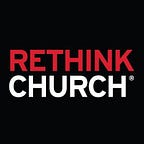Doubters’ Guide to Easter
by Brett McArdle, Content Branding Manager
We’re still several days out from Easter, but it’s time for my annual tussle with doubt as I consider the circumstances of the resurrection. And I do this from the perspective of what I’ll call Christian skepticism.
When it came to going to church, my family growing up was made up of CEOs — Christmas and Easter Onlys. Attending a house of worship was viewed like cough medicine: good for what ails you, but don’t make a habit of it.
When I entered college, my circle of friends at Baptist Campus Ministries at the University of Alabama ran the gamut of Christian experience, and many were children of preachers and missionaries. They had already forgotten more about their faith than I had ever learned, and in time, they became my closest friends.
Yet I brought a writer’s skillset to the table and I kicked the tires about my faith. Rare was the biblical passage that I didn’t examine for greater clarity. When you start to ask the big questions of Life, it’s natural to pursue the subject in a determined manner. Anything less and you’re cheating yourself.
I became more and more like Thomas — the apostle noted for his doubt. Before he would believe, he had to see the marks where nails had penetrated divine flesh.
Doubt became my companion as I learned about faith. For every apologetic, I read the work of an agnostic. For every time I read the Gospels, I noted the loopholes. Because if you wish me to live according to a book written centuries ago by many authors — not all of whom are in agreement — the bar to hurdle my raised eyebrow is set rather high.
I was seeking believable, eyewitness testimony from a considered point of view. Yes, I see the irony of someone wanting a faith based on proof, but those are the terms under which I struggled.
“If you would be a real seeker after truth, it is necessary that at least once in your life you doubt, as far as possible, all things.”
- Rene Descartes
Though I doubted, I was curious. What could I believe in the Easter Story?
Even a cursory read of the first Easter uncovers inconsistencies. Were there one or two angels? Why can’t the Gospel writers settle on which women went to the tomb? Matthew notes an earthquake, which the other Gospels don’t, and describes the guards’ report to the chief priests. How does he get this information? Only Luke describes the road to Emmaus. Then John states that Jesus performed many other signs, but doesn’t list even one. Are you kidding me? Why can’t these people get their story straight?
Still, the Gospels carry undeniable commonalities: The tomb was found empty, at least one woman visited, and at least one angel was seen. Christ appeared to people in a number of locations — and that is key. In this world that relies on eyewitness testimony, the reported physical presence of Christ is the greatest proof.
Years ago, a pastor offered another logical idea that is difficult to refute. He noted how Christ’s followers had, in many cases, died brutal, torturous deaths. He noted that “rational people don’t go to their deaths for a lie.” While this was not a groundbreaking defense of faith, it carried an enduring intellectual and emotional truth.
It is one thing for Christ’s followers to stick to their story. It’s quite another when sticking to your story can lead to ridicule, persecution, imprisonment and even death. Would you do that for a lie?
Because in the end, each person must choose either his or her own hubris and skepticism or trust in a humility and appreciation of what lay beyond our limited minds.
I rest on this: Those multiple, independent eyewitnesses to Christ are our cornerstone.
My questioning nature drove me to this place. Simply believing was never sufficient. I had to know more so that I might talk with others about a Creator and a Savior whose mercies and capabilities dwarf our imagination.
As you seek to grow in resiliency of faith over time, may your faith be renewed by the meaning of the empty tomb.
